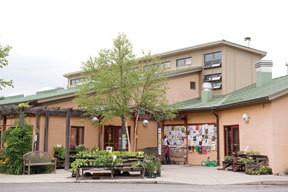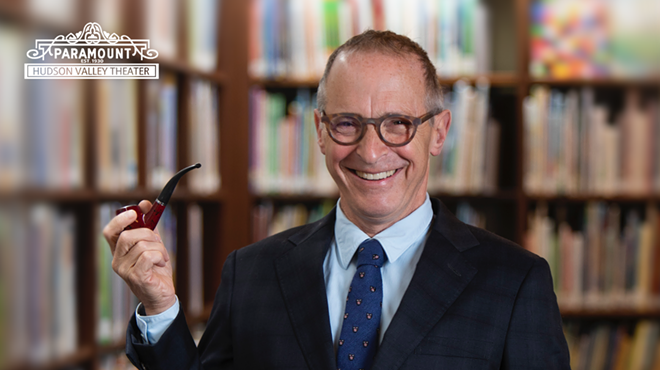The Hawthorne Valley Association is also an organization that has been dedicated to the principles of sustainability since well before the concept existed. It is steadfastly local and committed to not scaling up to play at the global corporate level, although at this point it probably could if it wanted to. Its cultural programs address issues of social equity, for instance, bringing inner-city kids to experience life in a natural setting. Its approach to farming is dedicated to enhancing the carrying capacity of the land. Without even trying, it has become a local (and increasingly, national and global) exemplar of how an organization can be totally local, deeply sustainable—and, miracle of miracles, thrive.
It wasn’t always that way. When Executive Director Martin Ping first became part of the organization in 1982, it was, in his words, “woefully cash-strapped.” Today, with over $10 million in annual revenue and about 75 employees, it is financially healthy and also sizable, assuming we use “local and reasonable” as our benchmark, as distinguished from “global and insane.” Much of this growth has occurred during Ping’s tenure.
Chronogram caught up with Ping recently for a discussion about his life, the organization he runs, and (though we weren’t expecting it) the nature of leadership. The tone for the conversation was set early when we asked what his title was. His answer: “executive servant.”
When I started my own family in the early 1980s, I wanted to be in a place where there was community like what I’d grown up with. I’ve never really been motivated by traditional notions of wealth. For me, prosperity is created by community and relationships. This is what brought me to Hawthorne Valley.
At the time, I was a builder. Hawthorne Valley needed help, so I helped. I’d bring in my crew and we’d volunteer on building projects. Things expanded from there. Eventually I was offered a paid position to shepherd the buildings and grounds. Then I started teaching woodwork and metalwork in the high school. Over the years, I got more and more involved. Eventually I got burned out and decided I needed a sabbatical—this was in 2003. I wanted to build a very small home for my wife and myself—450 square feet, too small for us to argue in (it would raise the temperature too much). A couple of months into my sabbatical, I was asked to be the executive director. I couldn’t say no. I was really committed to building a just and sustainable food system. I’ve been in that role ever since.
And now you’re something of a luminary in the local-economy movement!
It’s a mystery to me how it happened. I’ve simply been putting one foot in front of the other. And in fact, this status is a bit intimidating. Sometimes I look in my tool kit and am amazed at how empty it is. But I’ve also learned there’s one all-purpose tool you can always reach for: love. If you can love what you’re doing, love the person you’re with, and love the world you’re a part of, that goes a long way toward overcoming the areas where you may feel deficient. I reach for that tool all the time, and it works.
At the same time, though, I must acknowledge that I own my own destiny. Life has put amazing people in my path—the universe has extraordinary beauty in how it self-organizes to respond to the needs of the time. We need to pay attention to the messages it’s giving us. We need to be awake, and silent—we need to listen long and carefully. We need to align attention with intention. When you do that, remarkable things happen that otherwise would be way beyond my or anyone’s individual capacity to bring about.
I walk to work every day on a cow path, and I find that I’ve learned by thinking about the cow. We’re rushing and racing full-speed ahead—toward what? All our actions have consequences and only a small percentage are intended. We need to use our innate capacity to pause and reflect. We need to honor silence and allow understanding to emerge. What does the cow do? It ruminates. It digests and digests and digests.
Grass is stored energy. A lot of forces go into growing the grass. There is cosmic energy in the form of sunlight and there are earthly nutrients such as rain. The cow eats this stored energy and digests it. What is the cow thinking as it does this? In my imagination, the cow is wondering, “What is the Earth asking for?” The answer the cow hears is, “To improve the quality of the soil so there will be better grass for future generations of cows.” Then the cow does its part in helping to make that happen.
What do you think people see when they look at—or maybe I should say, “digest”—Hawthorne Valley?
They see something that looks like community. They see people caring, working with each other, and having real relationships. People yearn for this. In our DNA, we remember what community is.
Still, we shouldn’t gloss over how much work has gone into creating Hawthorne Valley. Where we are now was 40 years in the making. Community isn’t without its conflicts. We don’t always succeed in our relationships.
In our time, as a society we’ve played the individualism card to the hilt. We experience ourselves as separate from nature, others, and our own higher self. We’re trying to reconnect at all these levels, but it’s very hard to do that on our own. The best way to proceed on this journey is in community with other people who share your goals and values. It’s not a neat, clean, and tidy process, but it’s definitely worthwhile.
Freedom is one shared value. Trying to grow food in a way that’s sensitive to the Earth’s needs is another. These shared values give us something to rally around when we’re bumping into each other karmically.
First, let me say that we’re thrilled to be part of the greater Hudson Valley community—and we’re also grateful to Chronogram for being a driving force in promoting new and necessary ways of thinking, and for recognizing the role of creative, free thinking as a catalyst for positive change.
Here in the Hudson Valley, we have the natural resources, market possibilities, and human intelligence to bring about a real renaissance in our food and social systems. I’m betting it will happen.
What will be required for this renaissance to come about?
All change requires a change in consciousness—for instance, by becoming more conscious about our money transactions. Beyond that, we need patience—but not too much of it. We need patience coupled with a sense of urgency.
We also need to nurture our relationships. We need to find the compassion and tolerance to realize we’re all in this together. We need to find ways to break down the walls between us. We need to find bridge-building language that recognizes how much we have in common rather than encouraging us to obsess about the few things we disagree on.
Last but not least, we need gratitude. Without gratitude, we tend to only go into the place of what’s wrong. Even if we do that for altruistic reasons, we miss two essential points: The earth is a beautiful place, and we humans have a higher self to aspire to. When we fail to recognize these things—when we fail, in other words, to be grateful—we don’t invite into daily manifestation the positive changes that might otherwise occur.
Martin, if this renaissance happens, your leadership will have been a factor. How would you most like to be remembered?
As a smiling, really happy grandpa.
Carl Frankel writes regularly for Chronogram about sustainability and green living issues. He is the author of Out of the Labyrinth: Who We Are, How We Go Wrong, and What We Can Do about It.














